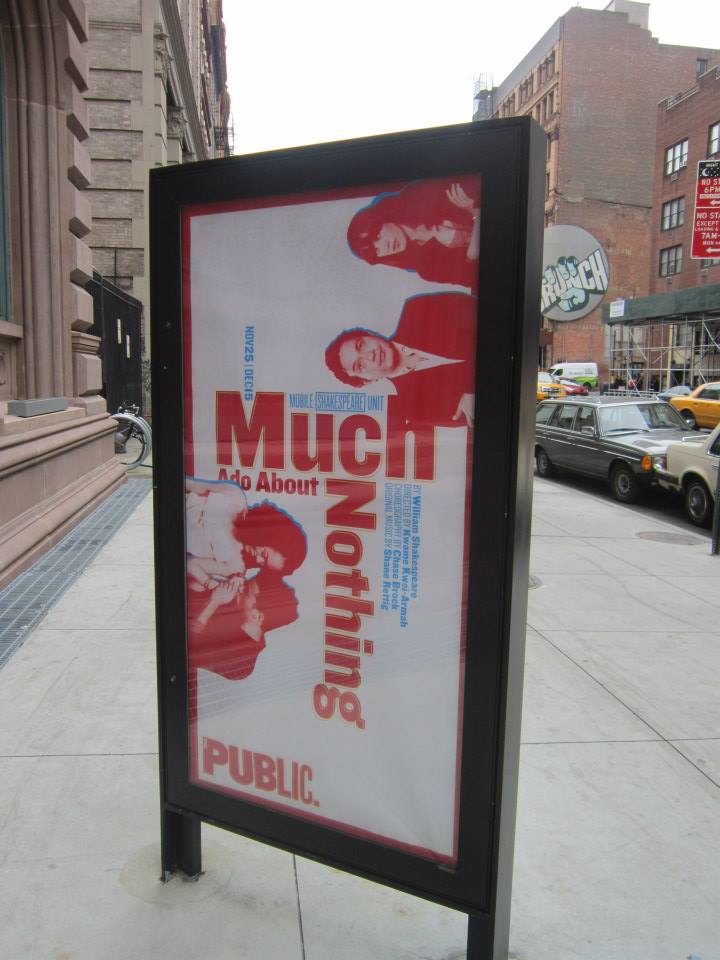The Public Theater’s Mobile Shakespeare Unit performs in prisons, centers for youth at risk, and the like, as well as dropping in at home base to offer particularly low cost Shakespeare to the Public’s regular patrons. It was interesting to see the Unit’s version of MUCH ADO ABOUT NOTHING in a season during which there has been so much Shakespeare worth seeing in the city as a whole. This falls into the worth seeing category, but is a very different sort of production.
It is, for one thing, stylistically determined by its mission and the audiences for which it is designed. Absent are any startling new angles on the play itself, nothing about the power relations of sex and gender, a persistent theme in the other Shakespeares I have seen this fall. MUCH ADO could easily have borne such an interpretation (indeed the script misses something in itself not to), but the production’s concern lies elsewhere. It is explicitly introduced as a story about love, and the reluctance to love, and supposed romantic betrayal; in other words, a familiar and unintimidating story – on top of which is laid a message of inclusion and personal responsibility.
The casting of Shakespeare across races and ethnicities is now so normative as to pass nearly unobserved in the average production, but there is something about the way it is handled here that feels like a conscious affirmation, with its citywide audiences in mind, of diversity and its values. This impression is encouraged, in a way, by the double-casting of a number of actors, often in roles carrying a different moral value. The same actor (Lucas Caleb Rooney) plays both the unreconstructed villain Don John and Dogberry, the bumbling but good-hearted constable; just as Rosal Colón plays both Margaret, who participates in Don John’s plot to slander Hero as unfaithful, and Friar Francis, who hatches a scheme to set the record straight. This carries, without being too obvious about it, just the sort of message that would be approved by the authorities in a youth center or correctional setting, that there are good and bad choices to be made in life, and that each of us are responsible for our own.
Of course, the double-casting also keeps the cast small, which makes the production portable and, one assumes, relatively inexpensive; the set is just a large multi-textured green carpet that could be grass, an interior floor surface, or whatever, and the costumes are simple and contemporary. The cast is enormously likable, and their style of speech eschews the flourishes of diction and vocal effect that a different sort of production might demand, keeping the acting relatable and somewhat streetwise in style and tone. The end result is that Kwame Kwei-Armah has directed a MUCH ADO that is accessible and appealing, flexible and uncontroversial, and salutary in its social and educational message.

One response to “Much Ado About Nothing”
[…] and language are pulled into a later time, as in Almereyda’s Hamlet 2000 or Whedon’s Much Ado About Nothing: the one thing that isn’t updated is a cultural knowledge of the very lines being […]